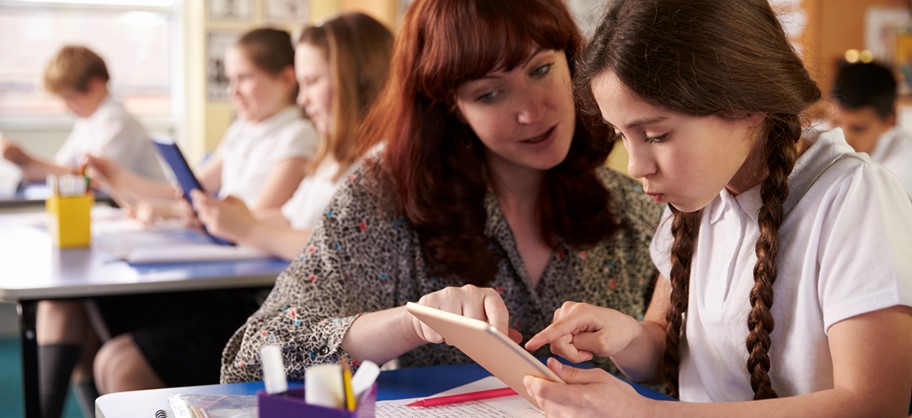Latest News
iPads in the classroom – are there any downsides?
By Harry Brown |
23rd February, 2018 |
Categories:

Technology in the classroom can help engage students, improve computer literacy, and ensure pupils gain the necessary digital skills to help them in their careers. In fact, education technology is now seen as a global opportunity, according to a recent article by TechCrunch. But are there any negative implications associated with embracing digital learning techniques?
iPads and tablets are becoming an increasingly common tool in UK classrooms. In fact, the latest BESA survey found that three quarters of schools across the country were using tablets for over half of lesson time in 2015.
However, an expert has now warned that this dependence on tech has made children become disinterested when in lessons without technology.
As the Daily Telegraph reports, Dr Patricia Davies, a senior lecturer at the University of Wolverhampton, argued that schools that don’t adopt digital learning techniques would face difficulties when trying to capture the attention of children.
She commented: “I think we are getting to a stage where learning in a traditional setting is becoming more and more boring for young people and children. We run the risk of losing a lot of them because they are not engaged.”
Schools across the UK are investing in iPads, edtech and other digital tools for the classroom but Dr Davies, an expert in computer science, warned that teachers often don’t know enough about the impact these innovations can have on children’s learning.
To gain a better understanding, Dr Davies studied the introduction of iPads for children in year four and year seven at a preparatory school. While it was observed that children had more fun in the lessons making use of the tech, there was a noticeable difference in concentration levels when they were not being used.
Analysis of the children’s responses concluded that: “It was easy for them to become disengaged and disinterested in classes that did not involve iPad use because ‘the lessons are boring and [we] find it hard to concentrate’.”
While the “excitement of these new digital technologies has the potential to prompt novel ways of teaching and learning”, Dr Davies believes schools investing in such tech also need to improve their understanding of how these tools can help children and how they can be better tailored to address the individual needs of each child.
She concluded: “While lauded for their educational potential, iPads can unsettle a school’s capacity to control pupils’ actions and behaviours. They also introduce a new set of practices that potentially require regulation.”
Does your child use iPads in their classroom? Do you incorporate digital learning tools into their homework?


